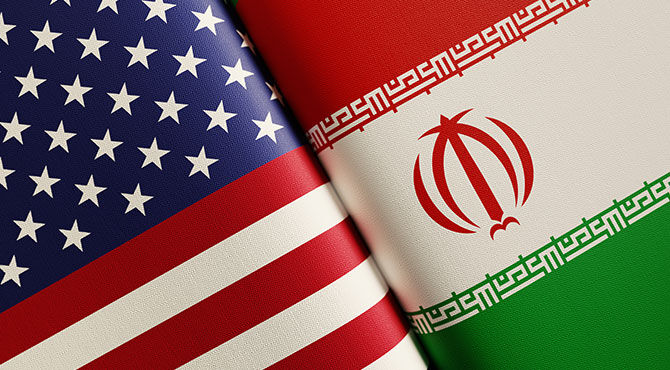EU nations vow to maintain Iran trade despite US sanctions
European nations have vowed to continue trading with Iran despite President Donald Trump's imposition of sanctions to put "maximum pressure" on the Tehran regime.

 6 November 2018
6 November 2018Read more about the US president's effect on trade and world events:
In a phone call, UK Foreign Secretary Jeremy Hunt assured his Iranian counterpart, Mohammad Javad Zarif, underlined the commitment of London and other nations to the to continued implementation of the 2015 JCPOA deal.He also underlined the need for immediate establishment and implementation of Europe's special payment mechanism known as Special Purpose Vehicle (SPV) in a bid to maintain economic cooperation with Iran.The aim of the SPV is to allow companies to continue to trade with Iran without facing US penalties. The system will handle transactions between Iran and international companies like a bank but will avoid direct payments into and out of Iran."So when Iran exports oil to a country in the EU, the company from the receiving country would pay into the SPV," explains the BBC. "Iran can then use the payment as credit to buy goods from other countries in the EU through the SPV."But latest US measures exclude any company that trades with Iran from doing business in the United States. In addition, under far-reaching secondary sanctions, any US company faces punishment if it does business with a company that does business with Iran. Sanctions on the banking sector will also be introduced on Monday.Iran's economy is not directly reliant on the US financial system, says Richard Nephew, a sanctions expert and senior researcher at Columbia University. "But the issue is that most of Iran's biggest trading partners do and that affects their readiness to put at risk their access to the United States to do business with Iran."Mr Nephew believes small and medium-sized companies are more likely than large companies to use the SPV but Leigh Hansson, head of international trade and national security at global law firm Reed Smith, believes that the use of SPV to trade with Iran might also be a violation and make companies liable to secondary sanctions.Inevitably, the Iranian oil industry is the main target of US sanctions and Secretary of State Mike Pompeo has said America's aim was to reduce Iranian oil sales to zero. But he has confirmed that the Trump administration had granted temporary exemptions to eight countries to continue importing Iranian oil - China, India, Italy, Greece, Japan, South Korea, Taiwan and Turkey.Smaller oilfield services firms could miss out on work in Iran due to the US sanctions, according to Ashley Kelty, an analyst at Cantor Fitzgerald consultancy in Aberdeen. He said he not expect a major impact for larger firms, but felt smaller companies who had hoped to pick up work in Iran “could suffer”.For related news and features, visit our US section.Relocate’s new Global Mobility Toolkit provides free information, practical advice and support for HR, global mobility managers and global teams operating overseas.
 Access hundreds of global services and suppliers in our Online Directory
Access hundreds of global services and suppliers in our Online Directory
©2026 Re:locate magazine, published by Profile Locations, Spray Hill, Hastings Road, Lamberhurst, Kent TN3 8JB. All rights reserved. This publication (or any part thereof) may not be reproduced in any form without the prior written permission of Profile Locations. Profile Locations accepts no liability for the accuracy of the contents or any opinions expressed herein.






























